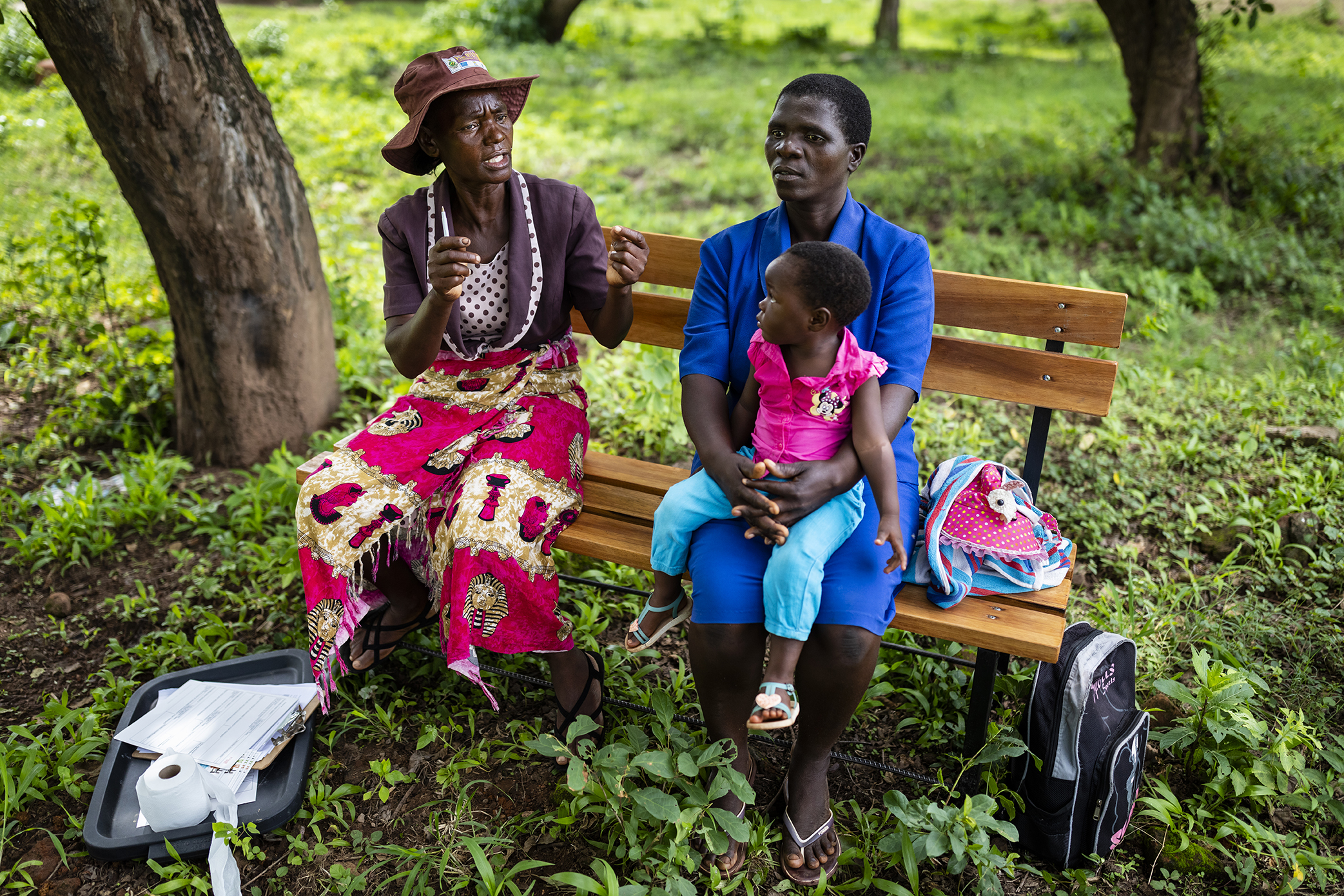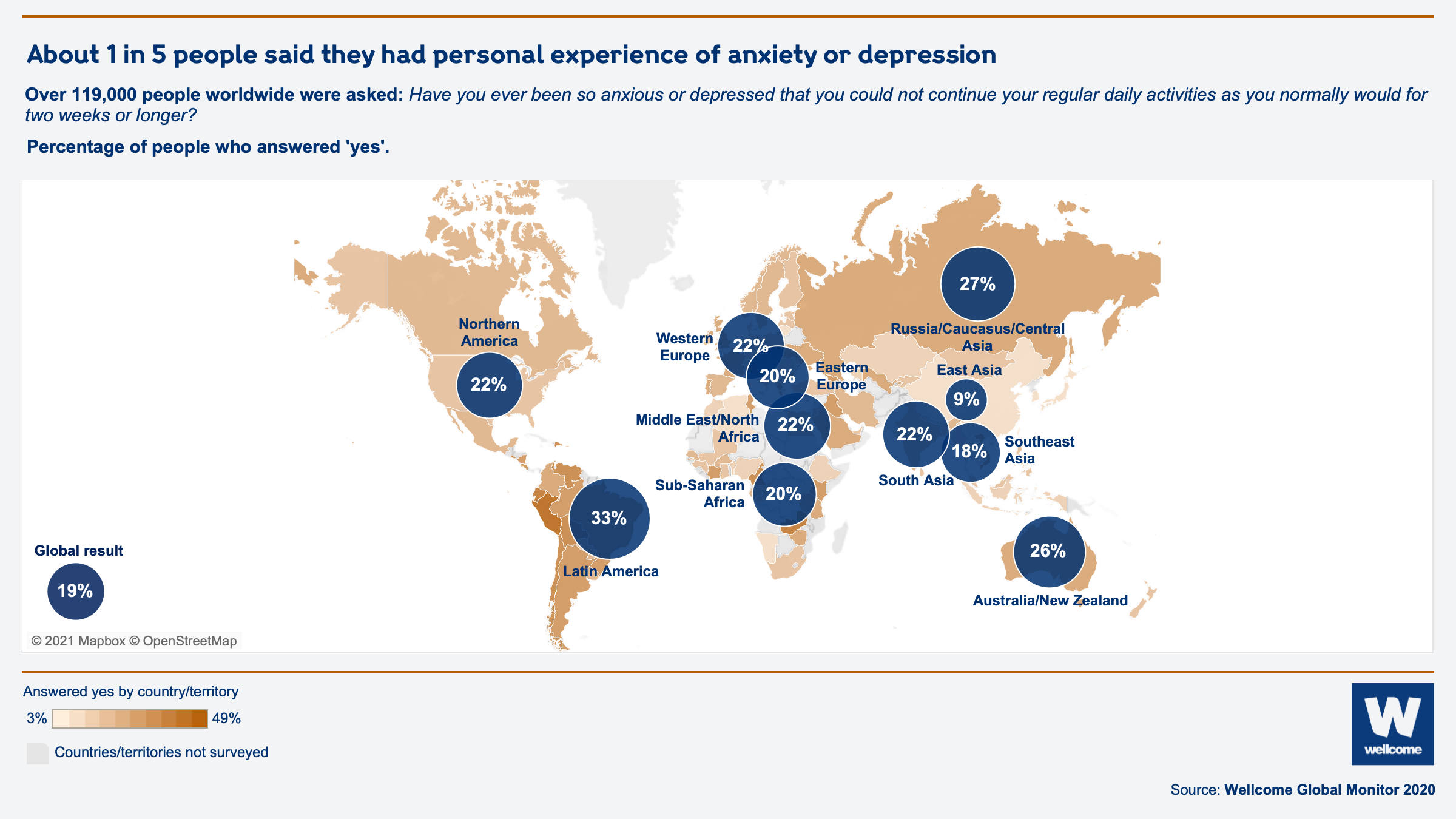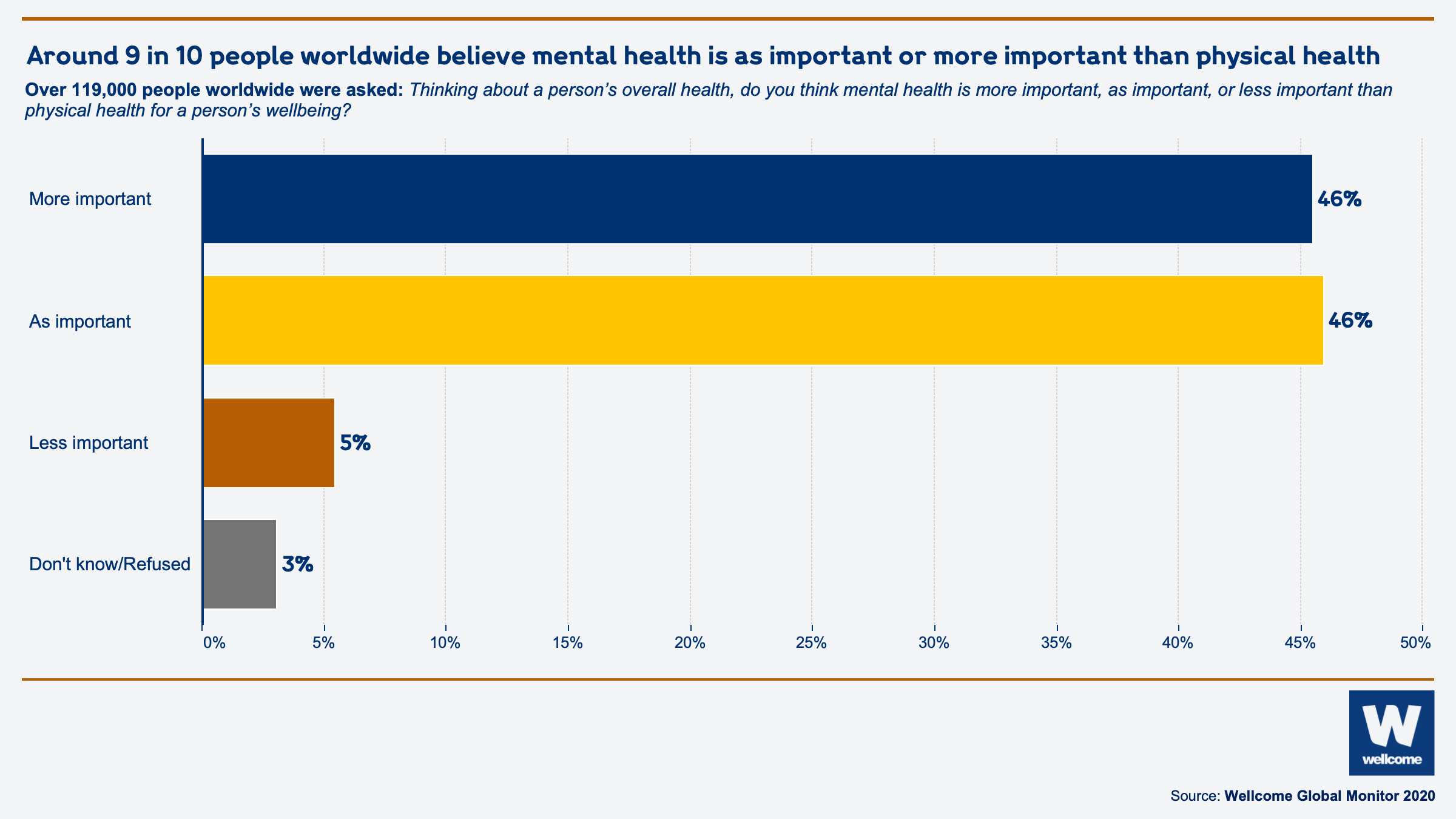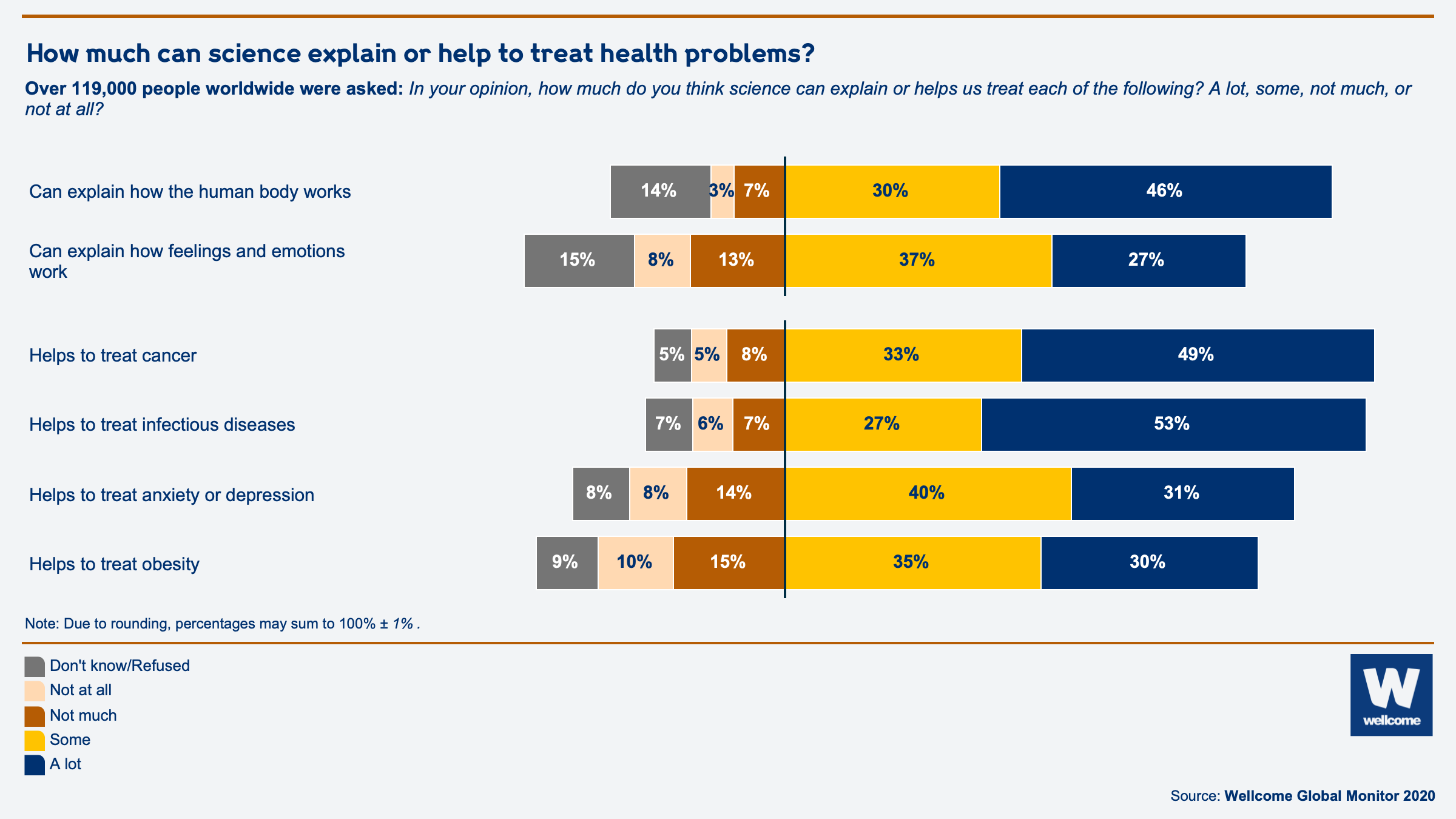Wellcome Global Monitor 2020: Mental health

About this series
Through Zimbabwe’s Friendship Bench programme, trained volunteers counsel people with depression and other problems using principles from cognitive behavioural therapy – in the informal setting of a chat on a bench.

Global perceptions of living with anxiety and depression, approaches to address it and the role of science in finding new solutions.
The role of science in mental health: Insights from the Wellcome Global Monitor.
The Wellcome Global Monitor: Mental Health is the world’s largest survey of how people consider and cope with anxiety and depression and explores the perceived role of science to find new solutions.
- findings about global perceptions of living with anxiety and depression, approaches to address it and the role of science, based on a survey of over 119,000 people in 113 countries.
- researchers
- funders
- policy makers
- science communicators
- public engagement practitioners
- anyone interested in mental health.
- People worldwide think mental health is important. The Wellcome Global Monitor shows 92% of people worldwide believe mental health was as important or more important than physical health across all countries.
- They are not sure that science can help. The Wellcome Global Monitor shows more people saw science as highly relevant to being able to help address infectious diseases (53%) than anxiety and depression (31%).
- A combination of different approaches are used by people globally to manage their mental health.
- Mental Health Science must rise to this challenge together, building on the evidence of what works to find next-generation treatments, and thoroughly investigate all possible solutions.






You can use any of the resources on this page when talking about the Wellcome Global Monitor. If you're sharing on social media, please use the hashtag #WMonitor.
Contact the team at W.GlobalMonitor@wellcome.org.